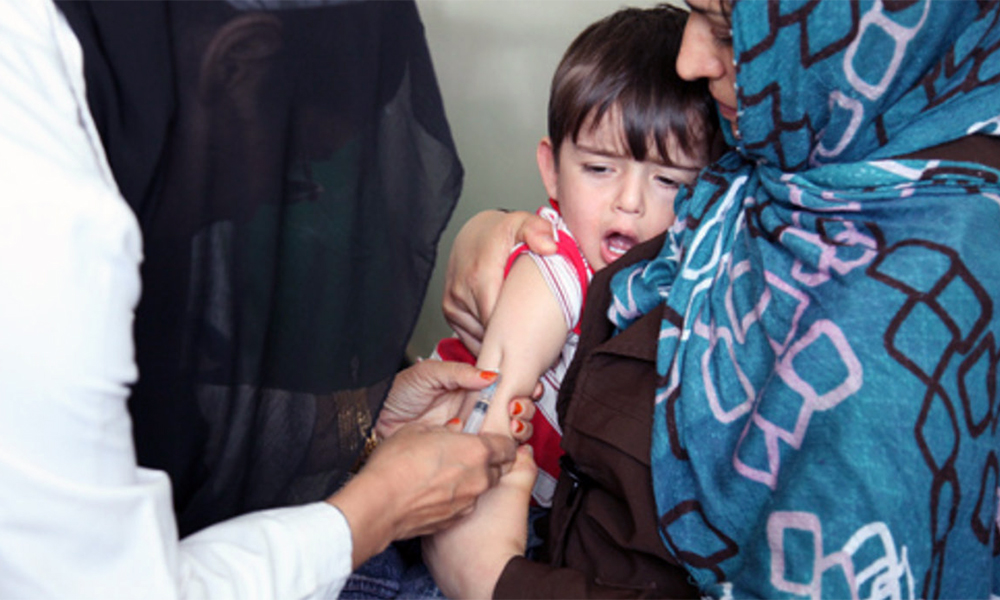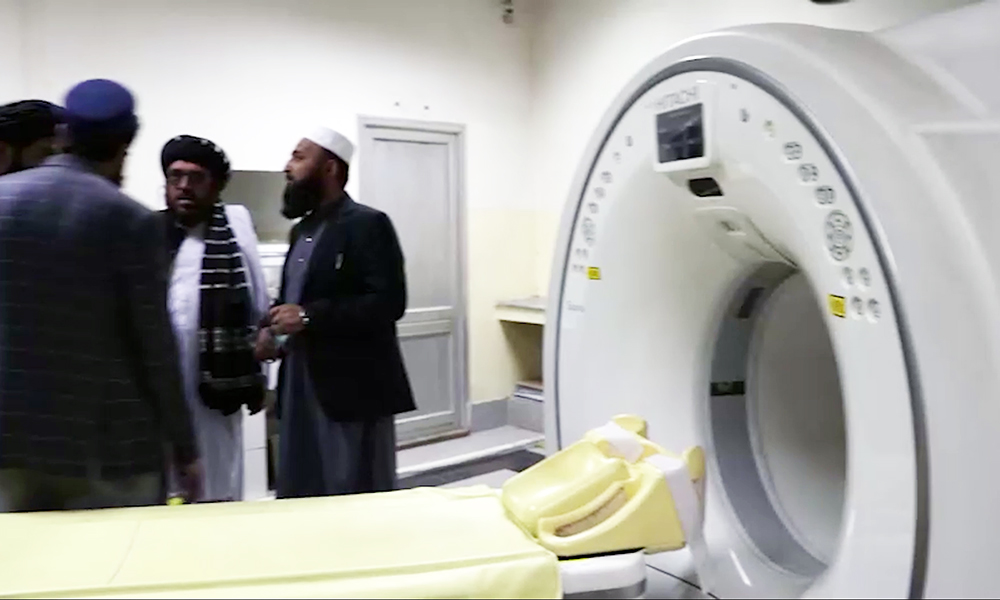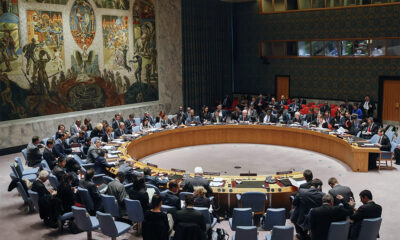Health
Millions of Afghan children inoculated against measles, polio in nationwide campaign

Millions of Afghan children have been vaccinated during the first nationwide integrated measles and polio campaign in Afghanistan since the Islamic Emirate of Afghanistan (IEA) came to power in August 2021, the World Health Organization (WHO) said Thursday.
Afghanistan has vaccinated 5.36 million nine- to 59-month old children against measles while 6.1 million infants to 59-month-olds received oral polio vaccine during the vaccination drive held from 26 November to 12 December.
Based on the data from Afghanistan’s Ministry of Public Health Expanded Programme on Immunization, the campaign covered 329 districts in all 34 provinces of the country – with 4,341 vaccination teams of four members on each team.
“It warms my heart that we were able to protect Afghan children from measles and polio as we enter the harsh winter season in the country”, said Luo Dapeng, the World Health Organization Representative in Afghanistan.
“I thank all the health workers, partners and donors who made this possible”.
Measles is a dangerous disease, with complications that can include severe diarrhea and dehydration; pneumonia, ear and eye complications; encephalitis or swelling of the brain; and death.
This year, many outbreaks were reported in Afghanistan, mostly among children under age five.
There is no specific treatment for measles and the only reliable protection from measles is vaccination.
“While measles is highly contagious, it is also a preventable disease”, said Dapeng. “We must not lose the decades of progress we have achieved in immunizing and protecting Afghan children”.
As of November, 5,484 cases were confirmed, with approximately 300 deaths attributed to measles infection.
Prior to the nationwide drive, a series of subnational measles immunization campaigns were conducted in 141 districts covering approximately three million children.
“The measles vaccine is safe and has been in use for more than 50 years”, the senior WHO official said.
“The benefits of vaccination are clear, as evidence shows measles vaccination saved over 23 million lives worldwide over the past 20-year period”.
WHO and the UN Children’s Fund (UNICEF) supported the measles campaign in Afghanistan with vaccine procurement and delivery and the development of immunization guidelines and communication materials.
The UN agencies also helped to build the capacity of health workers to manage and implement the drive and ensure that all eligible children are protected through safe and effective vaccines for measles and polio, WHO reported.
Health
Azerbaijan urged to help improve capacity of Afghan health workers

Acting Minister of Public Health Qalandar Ebad, in a meeting with Azerbaijan’s ambassador, Ilham Mohammadov, called for the country’s assistance in improving the capacity of Afghanistan’s health workers.
The two sides also discussed cooperation in the health sector, capacity building of Afghan health workers, and Azerbaijan’s role in the health sector and other issues, according to a statement released by the Public Health Ministry.
Azerbaijan’s envoy said that his country seeks to cooperate with Afghanistan in a sustainable manner in the field of health.
In other news, the foundation stone for the construction of oxygen production facility was laid at the Indira Gandhi children hospital in Kabul.
Officials of the Ministry of Public Health said that the facility will be built with the financial and technical assistance of the World Health Organization, and with the capacity to produce 200 cylinders of oxygen daily to meet not only the needs of the hospital, but also other health facilities.
Health
Balkh health officials report sharp increase in number of cancer patients

Balkh Public Health Department officials say there has been a significant increase in the number of patients with cancer in the province.
“In 1401, about 2,613 OPD (out patient department) cases were registered with us. In 1402, these figures were 4,912 cases,” said Ehsanullah Kaliwal, the head of the oncology department at Balkh Regional Hospital.
Some doctors say genetic factors, environmental pollution, arbitrary use of medicines, and excessive consumption of meat were reasons for the sharp increase.
One doctor said cancer was also hereditry.
However, a large percentage of cancer patients in Balkh have stomach cancer. Many of them have appealed for the government to improve treatment facilities.
According to health officials, in the first month of this solar year (April), 423 cancer patients visited this hospital for treatment.
Health
Majority of Afghans with mental disorders are women: officials

Based on last year’s data, 52 percent of people with mental disorders in Afghanistan are women, the Ministry of Public Health said.
However, after the Islamic Emirate took over the country and with the improvement of nationwide security and the provision of better health services, mental disorders have decreased, the ministry said.
“Overall, the mental security of men and women in Afghanistan is not ensured and their mental security is disturbed. According to the figures shared with us, in 2023, 52 percent of the visitors for mental disorders were women,” said Sharaft Zaman Amarkhil, the spokesperson of the Ministry of Public Health.
“Generally speaking, we can say that compared to the past, the instances of mental illnesses have decreased,” he added.
People suffering mental disorders mostly refuse to share their problem, willingly or unwillingly.
“There are many problems at home; We are poor. I finished school, but didn’t find any job,” Ansar, a mentally ill person, said.
According to the World Health Organization (WHO), half of Afghanistan’s population suffers from mental distress.
Factors such as unemployment, poverty, domestic violence, ban on girls’ and women’s education and work, and drugs are said to be key contributors to mental distress.
-

 World5 days ago
World5 days agoUN Security Council to vote Friday on Palestinian UN membership
-

 Business4 days ago
Business4 days agoCommerce ministry inks 10 MoUs to boost development of small and medium-sized businesses
-

 Sport4 days ago
Sport4 days agoRashid Khan threatens BBL pullout after Australia postpones Afghanistan T20I series
-

 Latest News5 days ago
Latest News5 days ago2023 marred by ‘tremendous challenges’ for Afghanistan
-

 Sport5 days ago
Sport5 days agoAfghanistan loses 3-1 to Iran in Futsal Asian Cup match
-

 Latest News4 days ago
Latest News4 days agoOver 6,000 acres of land cleared of poppies in Badakhshan
-

 Health5 days ago
Health5 days agoBalkh health officials report sharp increase in number of cancer patients
-

 Latest News4 days ago
Latest News4 days agoMSF ‘deeply concerned’ over new phase of deportations of Afghans from Pakistan






















